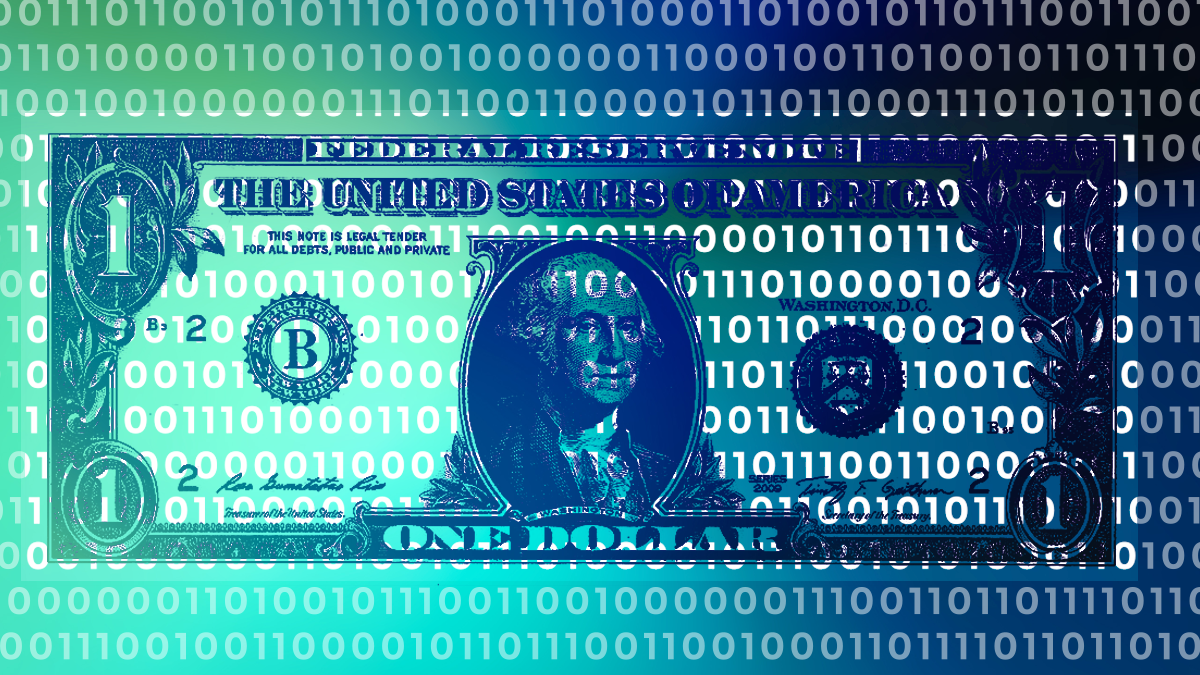October 28, 2022
One of the most important changes happening in the global economy today is invisible. It’s the accelerating move from hard currencies and brick-and-mortar banks to digital and mobile-based platforms for commerce, payments, and banking.
This shift, which got a boost from the COVID pandemic, will transform the global economy from the ground up: broadening households’ and entrepreneurs’ access to the financial tools they need to thrive and grow, which strengthens national and regional economies, ultimately spurring more global economic growth. The annual value of the digital economy is already valued at $14.5 trillion. And through the next decade, it will account for nearly three-quarters of global GDP expansion.
At the same time, the move to digital brings with it fresh challenges. The most basic one is access. Even as you comfortably read this on a device screen, more than 40% of the world’s population still is not using mobile internet. The so-called “digital divide” between the digital haves and have-nots is most acute for the global poor, women – particularly in traditional societies – and people in rural communities. Even in the largest economy in human history, nearly a tenth of Americans – mostly outside of big cities – lack reliable internet access.
There are also big regulatory challenges when it comes to the digital economy. If an artisan in Ukraine sells something to a buyer in Japan using a payment system located in the UK, whose laws govern the privacy of the associated data flows and the commercial and tax terms of the transaction? If a US tech firm sells digital services to a French company, which local privacy laws does it have to follow? Elaborating on these rules of the road for the digital economy remains a major challenge.
Lastly, there is the security problem. Mobile banking and digital payment systems are doubtless more efficient than clawing cash out of your mattress and handing it over in wads. On the other hand, the digital alternative is potentially vulnerable to millions of hackers or data thieves all working hard to fleece the world’s digital mattresses. Digital platforms expand opportunities not only for business entrepreneurs but for criminal ones as well. Keeping financial and data flows safe and private in a digital world is an immense challenge.
What’s 1 + 0? In sum, the promise of a digitalized global economy is immense, but businesses and policymakers will need to work together to ensure that the new economy doesn’t replicate, or accentuate, the inequalities of the old one.
From Your Site Articles
More For You
People in support of former South Korean President Yoon Suk Yeol rally near Seoul Central District Court in Seoul on Feb. 19, 2026. The court sentenced him to life imprisonment the same day for leading an insurrection with his short-lived declaration of martial law in December 2024.
Kyodo
65: The age of former South Korean President Yoon Suk Yeol, who was sentenced to life in prison on Thursday after being found guilty of plotting an insurrection when he declared martial law in 2024.
Most Popular
In an era when geopolitics can feel overwhelming and remote, sometimes the best messengers are made of felt and foam.
Hungarian Prime Minister Viktor Orban holds an international press conference in Budapest, Hungary, January 5, 2026.
REUTERS/Bernadett Szabo/File Photo
The Hungarian election is off to the races, and nationalist Prime Minister Viktor Orbán is facing his most serious challenger in 16 years.
How people in G7 and BRICS countries think their policies will effect future generations.
Eileen Zhang
Does skepticism rule the day in politics? Public opinion data collected as part of the Munich Security Conference’s annual report found that large shares of respondents in G7 and several BRICS countries believed their governments’ policies would leave future generations worse off.
© 2025 GZERO Media. All Rights Reserved | A Eurasia Group media company.
